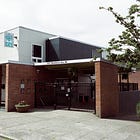Hanukkah Cholent Day 3-4: Education Roundup
Scary.
When I noticed the controversy in California a few years ago over a new ethnic studies curriculum that had some Jewish and Israeli parents enraged, I didn’t expect the drama to move up the coast so swiftly. Or, maybe I did, but I was hoping — expecting — it would be averted.
A lot of community reporting is somewhat predictable. What I found when I dug into liberated ethnic studies shocked me, from the purposeful ignorance around Jewish life and history to sneaky tricks — like convincing a school district that I had no right to review public records. (As a compromise, I was able to review hours of materials only under the supervision of an HR employee for two hours with nothing but a yellow legal pad for notes. I hope she found watching a sexually explicit poetry performance in her office enlightening. Yes, this is the kind of content that is being fed to teachers to help them liberate their students from so-called white supremacy.)
Over the years, I have spoken to legislators, given presentations, and written about how liberated ethnic studies is not just social studies 2.0. It is explicitly not about multiculturalism. It’s a movement that seeks to reframe America, and it uses “Zionism” as a tool to achieve its goals. I’m still not sure if people really understand what’s going on here. So, here’s a quick recap.
Then there’s the University of Washington, which can’t seem to get out of its own way.
What about primary and secondary education? You may notice a pattern: education officials and leaders who can’t quite figure out where the line is between free speech and anti-Jewishness. Leaders who, perhaps, are more scared of the anti-Israel crowd than Jewish parents. The Jewish parents will complain, and that’s annoying, but it’s easier to deal with than replacing your windows when they get smashed in.
Does this mean our Jewish private schools will grow? In reality, we should not want our Kafkaesque public schools to be the main drivers of Jewish education; we should want a desire for Jewish education in its own right to drive that shift. We should see our Jewish day schools as models of exemplary education, not as an expensive last-resort. If anything good can come from this moment, it’s the growth of the idea of a Jewish school into first-rate, desirable, even competitive option.
Thanks for (re-)reading. Happy mid-Hanukkah!











Excellent compendium.